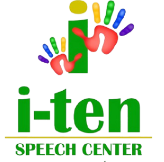Details you would like to know
Psychological and Behavioral Assessments

Psychological assessments are vital tools for evaluating cognitive, linguistic, and behavioral abilities. Our center offers a range of tests to assess strengths and weaknesses, ensuring an accurate treatment plan for every child.
Objectives of Psychological Testing
- Assess children's and adolescents' cognitive, language, and behavioral abilities.
- Determine intelligence levels and cognitive skills.
- Accurately diagnose psychological and behavioral disorders.
- Develop individualized treatment plans based on assessment results.
Types of Psychological Assessments
- Intelligence Tests: Including the Stanford-Binet Intelligence Scales (SB-5) to measure overall intelligence and cognitive abilities.
- Language Tests: Such as the Expressive and Receptive Language Test for evaluating language skills.
- ADHD Assessments: Including the Conners Comprehensive Behavior Rating Scales (CBRS) for assessing attention-related behaviors.
- Autism Spectrum Disorder Tests: Including the Childhood Autism Rating Scale (CARS) to assess ASD severity.
- Intellectual Delay Assessments: Evaluating cognitive delays through customized tests designed for developmental delays.
How These Assessments Help Your Child:
Psychological assessments provide a comprehensive evaluation of a child’s condition, allowing us to create precise treatment plans tailored to their unique needs. We ensure a comfortable environment during the evaluation to achieve accurate and objective results.
For inquiries or to schedule an assessment for your child, visit our website or contact our center directly.
Additional Information on Psychological Assessments
Psychological assessments aim to determine strengths and weaknesses in children and adolescents, helping professionals create personalized intervention strategies.
Specific Assessments Available
- Stanford-Binet Intelligence Scales (SB-5): Evaluates both verbal and non-verbal thinking skills.
- Expressive and Receptive Language Test: Determines a child’s ability to comprehend and use language effectively.
- Conners Comprehensive Behavior Rating Scales (CBRS): Assesses ADHD-related behaviors and their impact on daily life.
- Childhood Autism Rating Scale (CARS): Measures autism spectrum disorder severity.
- Intellectual Delay Assessments: Tailored tests to assess developmental delays and intellectual disabilities in children.
Assessment Details:
New Prices for New Cases Only
Test Prices
Stanford-Binet Intelligence Scale – Fifth Edition (SB5): 900 EGP
Language Assessment: 700 EGP
ADHD Assessment – Conners Test: 700 EGP
Autism Diagnostic – CARS Test: 700 EGP

Dr Youssef El-Shater
Each Child is Unique – Psychological assessments help identify a child’s strengths and weaknesses. Remember, the goal is not to label but to understand how to support their growth and development effectively.
